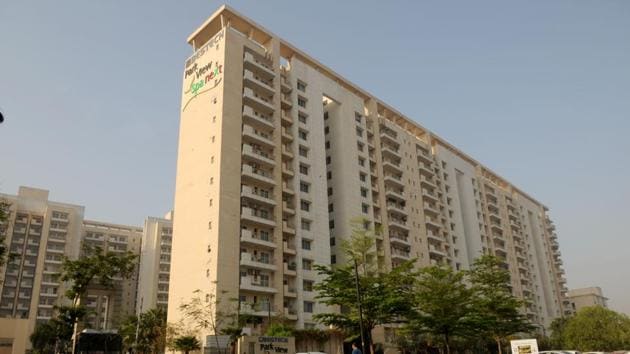Why is India’s real estate market stagnating
Developers have to seek clearances from multiple departments. They have to ensure compliance with a large number of rules and regulations that may be subject to revisions and pay steep official charges and fees. There are serious delays in granting permits and often, if applications are rejected, no clear reasons are given.
As India marches towards a decidedly urban future, concerns about quality of urban living should be topmost priority for policymakers. While there are many urban problems that need to be addressed, inadequate affordable housing is among the most serious. Without affordable housing in the formal housing market, millions among the poor have found shelter in slums where there is very limited access to basic amenities and risks of demolition are high. Given the scale of the problem, it is impossible for the Indian government alone to deliver well located “housing to all”; smooth functioning housing markets will also have to play a critical role in meeting this objective.

However, rigid rules dictating how much can be built and where, along with a veritable regulatory maze in getting essential permits to construct have created frictions in the housing market. Developers have to seek clearances from multiple departments. They have to ensure compliance with a large number of rules and regulations that may be subject to revisions and pay steep official charges and fees. There are serious delays in granting permits and often, if applications are rejected, no clear reasons are given. Speed money and bribes are common in the process leading to cost escalations. Rules governing land use effectively choke supply of land and also drive up land costs.
Furthermore, real estate and land are heavily litigated. Data collected from the Maharashtra Real Estate Regulatory Authority shows that around 16% projects and 31% of the built-up space are, or have been, in legal disputes. For Mumbai, these figures are 30% of the real estate projects and around 50% of the built-up space; for Thane, the corresponding figures are 26% and around 36% respectively. On average, a project in a legal dispute in Mumbai has four cases in various stages of resolution in different courts. As a result, projects remain stuck in the legal quagmire for prolonged periods. It is no surprise, therefore, that construction projects in Indian cities take too long to complete.
In a paper co-authored by us along with Alex Tabarrok from George Mason University and Shamika Ravi from Brookings India, we find that on average, the estimated completion times of real estate projects in Mumbai is around eight years. That is considerably longer than completion times in other countries. These delays can get costly if construction and land costs are financed through borrowing at very high interest rates.
To counter these issues, real estate developers have resorted to untenable practices for completing construction projects. They resort to cash flow manipulations by using funds raised from pre-sales of apartments in projects that have not yet begun to finance other projects that are already underway to get around the problem of unavailability of cheap finance.
Ultimately, both the significant delays and malpractices affect homebuyers who have little to no information about the reasons for delay. To address these problems in the housing sector, state governments have been directed to set up real estate regulatory authorities. The government of Maharashtra was among the first to set up the Real Estate Regulatory Authority. In Maharashtra, all developers involved in projects that are either larger than 500 square metres or have more than eight apartments have to register with the Authority and furnish detailed information about their ongoing projects along with details of any litigation on the project. Failure to provide accurate and complete information invites penalties. Further, developers also have to provide a stipulated date by when the project would be completed and have to pay interest to homebuyers in case of delays. Finally, developers have to set up an escrow account for each project and deposit funds collected from sales in these accounts to be utilised for financing construction and land costs of that specific project. Since being set up, the Authority has been actively monitoring projects and hearing grievances from homebuyers.
The creation of the Authority has, to an extent , helped mitigate the issues pertaining to asymmetry of information and curbing cash flow manipulation. However, addressing the symptoms (delays in completion) without resolving the underlying regulatory constraints developers face might further distort supply. The new regulations have been harder on some of the smaller developers who lack the wherewithal to navigate the labyrinth that is getting construction permits on time causing many to exit the market. The Authority has no jurisdiction to hold different government departments to account for withholding or delaying approvals without a valid cause. Without accompanying reforms that ease the complex permissions process and bring about transparency and predictability in rule implementation, the objective of easing housing supply bottlenecks to lower house prices and benefit homebuyers is going to meet with limited success.
Vaidehi Tandel is Junior Fellow, IDFC Institute, Mumbai and Sahil Gandhi is post-doctoral scholar at University of Southern California and Visiting Fellow, Brookings India.
The views expressed are personal



